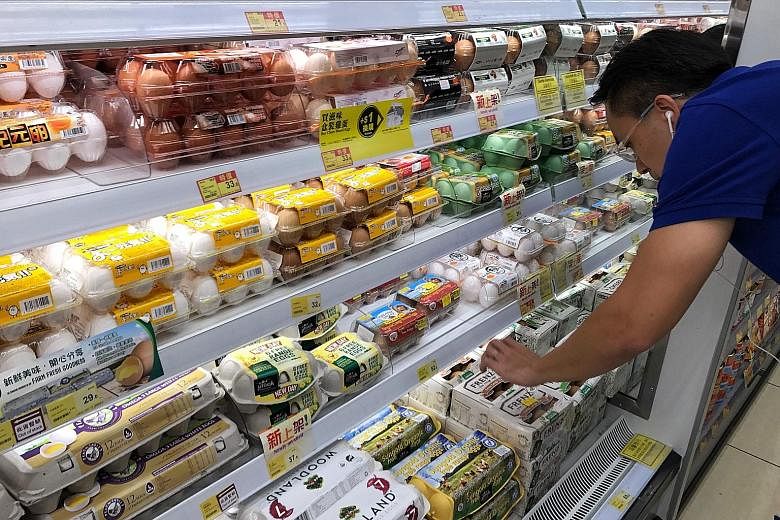HONG KONG • Hong Kong is increasing inspections of eggs imported from Europe, officials said yesterday, after some were found to be contaminated with an insecticide in a scandal which has now spread beyond the European Union.
Millions of eggs have been pulled from supermarket shelves across Europe and dozens of poultry farms closed since the discovery of fipronil, which can be harmful to humans, was made public on Aug 1.
But in a sign that the crisis is going global, Brussels announced last Friday that Hong Kong had received some tainted eggs from the Netherlands, with the southern Chinese city becoming the first place in Asia known to be affected.
Health minister Sophia Chan said yesterday that the authorities were "strengthening" inspections of eggs from Europe. "The Centre for Food Safety is now inspecting eggs coming from Europe closely, no matter at the import or retail level," she said.
Hong Kong's Centre for Food Safety (CFS) said last Friday two samples of eggs from the Netherlands were found to have exceeded local fipronil limits.
"The CFS has informed the vendors concerned of the irregularities and requested the trade to stop the sale and remove from shelves," it said in a statement on its website.
Meanwhile, Spain yesterday joined the ranks of EU countries affected, after a batch of 20,000 units of pasteurised liquid egg tainted by fipronil was found at a food company in northern Spain.
-
AFFECTED PLACES
EU COUNTRIES
• Belgium
• The Netherlands
• Germany
• France
• Sweden
• Britain
• Austria
• Ireland
• Italy
• Luxembourg
• Poland
• Romania
• Slovakia
• Slovenia
• Denmark
• Spain
NON-EU
• Switzerland
• Hong Kong
Fipronil is commonly used to get rid of fleas, lice and ticks from animals but is banned by the EU from use in the food industry.
The EU insists that there is no threat to human health, but the World Health Organisation (WHO) says that when eaten in large quantities, it can harm the kidneys, liver and thyroid glands in humans.
In addition to Spain, the other 15 affected EU countries are Belgium, the Netherlands, Germany, France, Sweden, Britain, Austria, Ireland, Italy, Luxembourg, Poland, Romania, Slovakia, Slovenia and Denmark, along with non-EU Switzerland.
Brussels announced last Friday that ministers and food safety chiefs from around the EU are set to meet on Sept 26 in a bid to get countries to stop "blaming and shaming" each other over the scare.
The issue has sparked a row be- tween Belgium, the Netherlands and Germany, the three countries at the epicentre of the crisis, on how long they had known about the problem.
"Blaming and shaming will bring us nowhere and I want to stop this," Mr Vytenis Andriukaitis, the European Commissioner for health and food safety, said as he announced the meeting. "We need to work together to draw the necessary lessons and move forward instead."
AGENCE FRANCE-PRESSE

